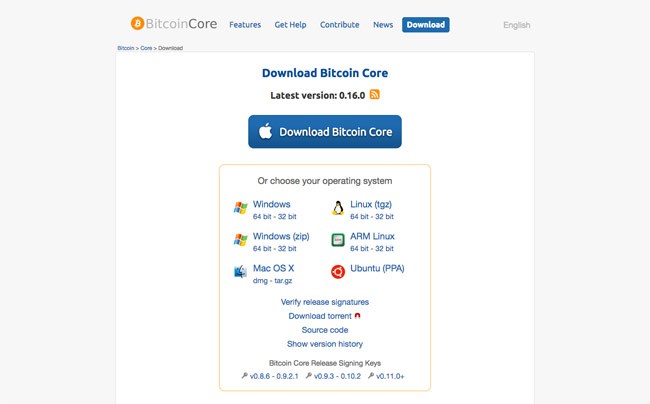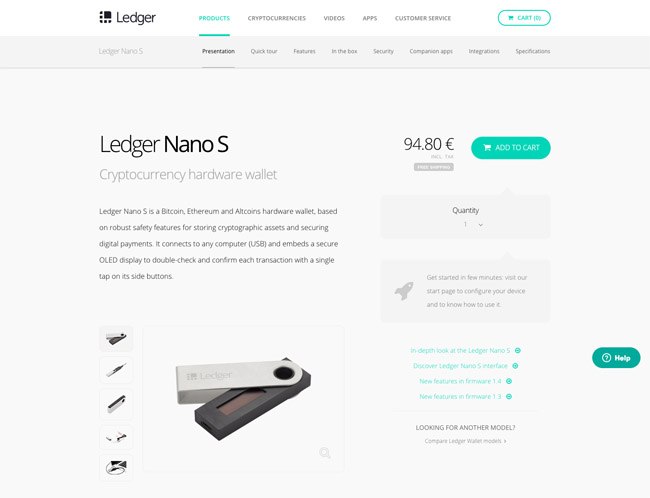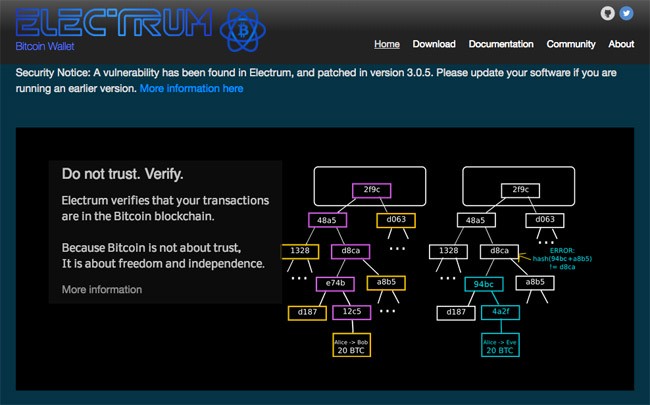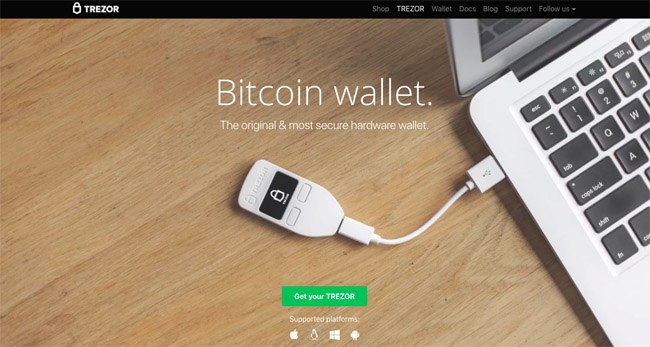Most new investors that have made their first bitcoin purchase usually struggle to find a wallet that is right for them. While there are hundreds of Bitcoin wallets available to be downloaded on the internet, not all of them are continuously updated or even developed with strict security standards in mind.
That said, there are several reasons why someone would use a dedicated wallet rather than one provided by an exchange such as Coinbase, with the most common ones being manual fee setting and having full control over the wallet’s private key. Given that a wallet has direct control over the user’s funds, using incompatible or untrusted software has the potential to cause a great deal of problems, including irrevocable loss of your bitcoin.
It is important to note that there are two primary types of bitcoin wallets, namely hardware and software variants. Much like their names suggest, one is a dedicated piece of hardware with no function besides securely storing your bitcoin, while the other is an ordinary program that lives on an existing computer of some sort.
Since hardware wallet implementations are designed to basically function as virtual safes, they’re more secure than traditional software ones at the cost of convenience. As a result, most people choose to store a small, spendable amount of bitcoin in a software wallet, leaving hardware alternatives for cold storage.
The following are some of the most popular wallets designed to securely store your Bitcoin wealth:
1. Bitcoin Core
While the Bitcoin Core software is usually not recommended to most new users primarily because it is not very lightweight, it’s still an excellent choice. This is because its main function is that of a full node, designed to keep the bitcoin network resilient from attacks. As a result, upon installation, the software downloads an entire copy of the bitcoin blockchain onto the user’s computer, taking up around 150 gigabytes of storage. However, while running a full node does require a significant amount of bandwidth and storage, Bitcoin Core’s persistent connection to the bitcoin network also makes it the most secure and safest wallet possible.
2. Ledger Nano S
The Ledger Nano S hardware wallet is perhaps the next best solution to having a local copy of the bitcoin blockchain. Storing funds on a physical device such as this one allows a user to either leave their holdings in cold storage or connect to any computer in the world to initiate a transaction. Being isolated from a computer also prevents the device from being infected with malware. The disadvantage is that, like any other piece of hardware, the Ledger Nano S comes at a price premium. For the security advantages that this device offers though, many would argue that it is well worth it.
3. Electrum
As far as desktop wallets go, Electrum has consistently proven itself to be the most popular and fully-featured option out there. It has support for multi-signature wallets, two factor authentication and as of a few months ago, can also be used as a SegWit wallet. It is also completely open source, as is standard for any respectable cryptocurrency-related software. While the developers also maintain an Android version of the app, it is nowhere as well-maintained, easy to use or highly rated, making it very hard to recommend. Nevertheless, Electrum is arguably the best lightweight desktop wallet for users of all skill levels.
4. BreadWallet
Released only a few years ago, BreadWallet has quickly become one of the most popular mobile-based wallets because of its sleek appearance and active development. Unlike some alternatives, Bread gives the user a lot of flexibility in terms of security features, including the ability to backup and restore a wallet from its private key. The app, available on Android and iOS, even allows users to directly purchase bitcoin without the need for a third party, provided they are located in a specific region.
5. Mycelium
Like Bread featured earlier on this list, Mycelium is another popular option among users that prefer to hold their Bitcoin on a mobile device. While the wallet is small and lightweight, its user interface is extremely dated and confusing to navigate. Despite this, it continues be one of the most powerful choices because of its support for hardware wallets and advanced features such as TOR routing. It is worth noting, however, that Mycelium is Android-only.
6. GreenAddress
Those looking for a bitcoin wallet that does not reside on one particular device may find GreenAddress to be one of the few web-based options out there. While such a service may be more convenient to access, it is important to note that the wallet itself is remotely located and, thus, not in complete control of the user. As a result, two factor authentication and other safety features should be enabled under all circumstances. GreenAddress also offers supporting applications for all platforms, including Windows, Mac, Linux, Android and iOS.
7. Armory
Designed with power users in mind, Armory is one of the older bitcoin wallets for desktop operating systems. In its time, it influenced several other cryptocurrency-related. While its original developer has since stepped down from working on the project, the open source community has managed to keep it updated to this date. Armory has support for most major security-related features and is a viable alternative to Electrum.
8. Trezor
Apart from Ledger, Trezor is the only remaining hardware wallet that still gets mentioned in most discussions on the topic. The company is actually one of the oldest consumer-grade hardware wallet vendors and has continued to maintain its reputation of security and usability, while still being cheaper than its competitors. While Trezor’s offering is functionally similar to the Nano S in almost every way that matters, it does lack some nice to have features that Ledger brings to the table, namely support for some altcoins and iOS platform support.
9. Jaxx
Created by Ethereum cofounder Anthony Diiorio, Jaxx is a multi-platform wallet available on all major desktop and mobile operating systems. The wallet’s main selling point is perhaps that it supports literally dozens of different altcoins other than bitcoin. It also boasts native ShapeShift integration, allowing users to convert between different currencies right from the app itself. While it doesn’t have the aesthetics of some other mobile wallets, Jaxx makes up for it with its comprehensive list of features and options. In addition to all of that, it is also one of the few mobile apps to give users different backup options, including a 12 word mnemonic and the private key itself.
10. Samourai
Samourai is a relatively new bitcoin wallet available exclusively on Android. While the app is fully functional and stable, the developers have classified its current version as an alpha release, meaning that it is not quite ready for use by the average user yet. For that reason, anyone using the wallet should make sure to write down their 12 word mnemonic immediately. Samourai is, in fact, one of the very few mobile-based bitcoin wallets to have support for SegWit, along with other features such as payment channels and TOR routing.
Featured image









